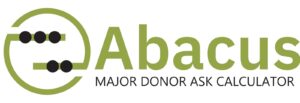I recently had the privilege being a panelist at an event focused on exploring the issues surrounding endowments. The forum, sponsored by the Boston area Foundation for MetroWest, was attended by regional board members from nonprofits with a range of missions and budgets of $500,000 through $5+ million. A common denominator among attendees was their need to raise annual and capital funds for present-day use… and all were struggling to do so.
It was clear from the spirited conversation that two big questions were on the minds of the participants:
- What EXACTLY is an endowment? What forms can it take, and how does it benefit my organizations?
- Should my organization pursue building an endowment? What factors should we be considering?
Have you had these same questions in regards to your nonprofit?
Given the seemingly amorphous nature of endowments, it is no surprise that so much confusion surrounds them. And, their definition can be as personal as what it might mean to be politically conservative, liberal, or progressive! A pure endowment, the rarest of the breed, is one that is donor directed, does not invade principal, has documented restrictions, and is bound to honor all of the conditions set forth by the donor. Most organizations have minimum gift levels to establish named endowed funds.
Of course, other forms of endowments exist too; the most common are “quasi” endowments. Under this scenario, the organization’s board directs the use of the funds and can change the restrictions as conditions dictate. In layperson’s terms, this is analogous to a business’ “reserve fund” – those monies which provides the basis for cash flow, investment earnings, and capitalization for new initiatives.
If your organization is considering building an endowment, here are three key factors to consider:
First: Test the waters. Draft a case statement for the endowment. If you are able to make a compelling, visionary case for how an outright or estate gift might be used in 20 to 40 years, then meet with your most supportive donors and stakeholders and see if the case resonates with them. You’ll be learning if you have a basis for the endowment initiative while at the same time bringing your advocates along toward their endowment gift.
Second: Insure board support. A successful case will give your board the basis to establish a policy to direct all unrestricted estate gifts received into a “quasi” board directed endowment. As a result, it becomes crystal clear that you are you are building a platform to support the future, not budgeting for this episodic, non-recurring revenue.
Third: Confirm resource bandwidth. Be certain that your organization has a secure revenue forecast before undertaking any additional fund raising initiatives. A standard metric for this is the number of days of operating expenses you can cover with your banked savings. This is a common measure for hospitals. Up until recently, most had up to 180 or more days of operating capital in reserves. Now, the majority have less than 80 days worth of funds. This measure is an easy tool to use for the board and others to help you determine how many days of capital your board is comfortable with before embarking on endowment building.
Your takes…
- Be clear about what you mean by “endowment” when discussing this financial vehicle with your board and stakeholders.
- Take a close, honest, and realistic look at your organization’s mission, advancement operation, plan for future growth, programming, and financial situation before arriving at the decision to pursue endowment building.
- Estate and planned gifts are typically the building blocks of endowments and can be integrated into your advancement operation as a first step in pursuit of a well endowed future.
For more information about Copley Raff and its spectrum of not for profit consulting services, please see www.copleyraff.com.
Have a development, executive recruitment, or campaign strategy or management challenge? Let’s talk! Click here to connect with Rebekah Kaufman, Director of Consulting Services at CRI.


